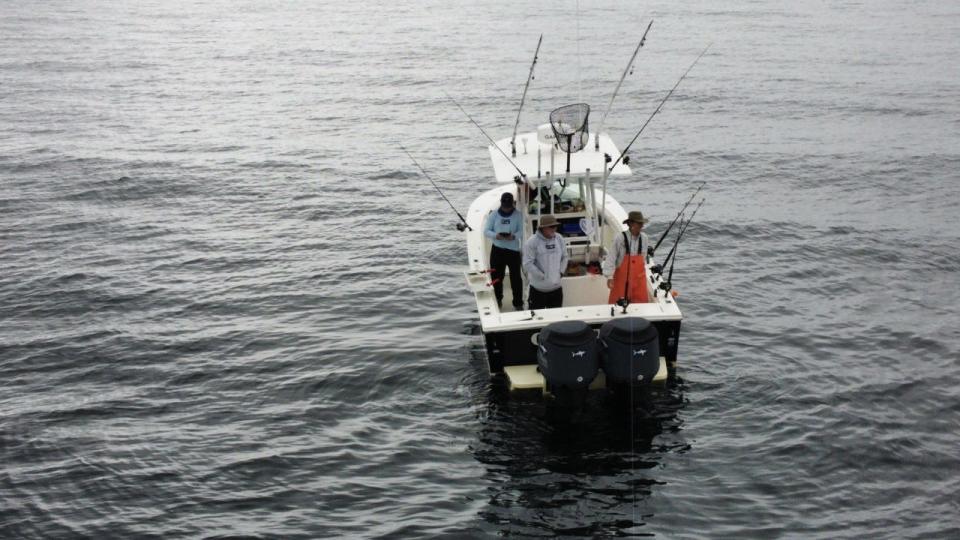RI shark researchers explore Long Island shark attacks for National Geographic
Last summer, Long Island had a historically high number of shark attacks with six people bitten, none fatally.
This year, two shark bites have already been reported, none fatal, on the sandy spit of land, its tip only about 25 miles southwest of the Rhode Island coast.
On Thursday night, two shark researchers with the Atlantic Shark Institute in Wakefield will help National Geographic explain why the sharks may have attacked last summer and which species was probably responsible. Jon Dodd, the institute's executive director, and Josh Moyer, the institute's resident research scientist, were interviewed for National Geographic's Sharkfest program "When Sharks Attack… and Why."
More: Why two shark species responsible for 25% of Florida's shark bites are in RI waters

“Last summer was very active along the south shore of Long Island as it relates to swimmers and sharks,” Dodd said. “There were a lot of questions about the number of incidents, the possible species, if this was an anomaly, as history would suggest, or the beginning of a new norm."
One of the biggest questions was which type, or types, of shark was responsible. As of last summer, the species was known in just one of the attacks. It was a sand tiger shark, identified by a tooth fragment.
Previously, Dodd wondered if two shark species relatively new to northeast waters could have been guilty. Black tip and spinner sharks are common off Florida and responsible for at least 24% of the shark bites in that state. In recent years, Dodd has seen black tip and spinner sharks showing up in waters off Rhode Island. He believes they're migrating further north with the warming waters.
"Is there a correlation" with the recent presence of blacktips and spinners in nearby waters?
Dodd said in a December interview. "We have no idea."
The Atlantic Shark Institute has had a busy season so far. It has tagged six great white sharks, three of them off the Carolinas before they began their migration north. On one day last week, researchers interacted with nine sharks, including five makos, Dodd said.
"Things are just starting to heat up," he said.
Dodd hasn't seen any blacktip or spinner sharks in Rhode Island waters so far this season; the water is still too cold for their liking.
Moyer, an evolutionary biologist at Yale University, demonstrates for National Geographic how examining bite marks can help scientists identify sharks. Moyer has been able to study photographs of the wounds of several of the Long Island victims, as well as the bite mark left on a surfboard. From the size and shape of the bite wounds, as well as his familiarity with the type of sharks that swim off Long Island, Moyer believes sand tiger sharks were responsible for last year's attacks.
Moyer describes sand tiger sharks as cousins to great white sharks. They can grow to more than nine feet long. Sand tiger sharks are common off Long Island and often chase fish in the shallows near shore, Dodd said.
Dodd and Moyer both believe the bites were mistakes. Sand tiger sharks look for food in the shallow, turbulent water where it's difficult to see and also where swimmers and bait fish tend to gather. The researchers believe the sharks thought they were going for a fish but bit into a human by mistake.
Are sand tiger sharks also the likely culprits in this year's attacks?
"It wouldn't be surprising," Moyer said.
Dodd, who was also interviewed for a Discovery Channel Shark Week program, hasn't yet seen the National Geographic show. Moyer was able to get a preview.
Moyer said, "I was very pleased to see the show will capture people's attention and get them thinking about shark biology and our interactions with sharks."
The show premieres on the National Geographic channel at 9 p.m. Thursday night and is available for streaming on Hulu and Disney+.
This article originally appeared on The Providence Journal: National Geographic Sharkfest show to feature RI researchers

